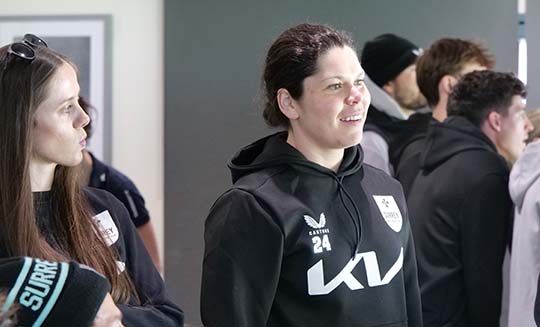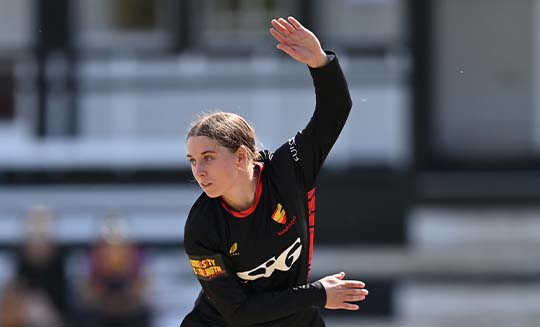PCA TO STAGE PLAY ON COLIN MILBURN’S LIFE TO HIGHLIGHT PERSONAL DEVELOPMENT AND WELLBEING The tragic decline of former England and Northamptonshire batsman Colin Milburn is to be turned into a play to help current players appreciate the importance of planning for life after cricket. ‘When the Eye Has Gone’ is a one man show that is being written by James Graham-Brown, the former Kent and Derbyshire all-rounder turned playwright, and being produced by Live Wire Theatre in association with the PCA. ” This is the next innovative step in our education and awareness of personal development and welfare, in particular mental health and wellbeing,” said Jason Ratcliffe, Assistant Chief Executive of the PCA. ” It builds on a number of initiatives, notably the Mind Matters series, in recent years and builds on the Personal Development and Welfare Programme across the 18 first-class counties and MCC Young Cricketers. ” There have been too many tragic instances of ex-professional cricketers losing their way when their playing days are over. We hope that seeing ‘When the Eye Has Gone’ will help everyone involved in the game understand the issues behind these tragedies and focus attention on how to prevent them.” Graham-Brown, who writes under the name Dougie Blaxland, has written 32 plays, 13 of which have been published by New Theatre Publications, and 14 have been produced in professional theatre. But this is his first play about cricket and tells how Milburn struggled to cope with life without cricket after his glittering career was ended when he lost his left eye in a car crash. Milburn died in the obscurity of a pub car park in his native Durham aged 48 after he drifted into chronic alcoholism. ” I have written two plays about sport, one about football and the other called ‘Hands Up for Jonny Wilkinson’s Right Boot’ for the Rugby World Cup but someone asked why I hadn’t written a play about cricket,” Graham-Brown said. ” It got me thinking about what I would want to write about. As a member of the PCA and reading the book about depression that was sent to members and being aware of what has happened to some younger players, I thought there was a really big story to be told about the importance of preparing yourself both psychologically and in terms of resources for what happens when you no longer play cricket. ” Colin Milburn’s story was a very public one, the loss of an eye, his comeback and then the decline when he finished playing. ” He fell apart, he had nothing behind him at all. He was 27 but the point is that in professional sport you don’t have to drive off a road and lose an eye for your career to end. You can do your knee or do your back, so many players finish because of physical injuries, that’s the nature of professional sport. ” A relatively high proportion just think it’s not going to happen to them. For ‘Ollie’ Milburn the irony of his loss of an eye was it happened just a few weeks as he had established himself as one of the most exciting players in the world. ” He had just scored 139 against Pakistan in incredible heat in Karachi when the rest of the side were falling apart. ” He had also taken Australia by storm playing for Western Australia, scored 243 against Queensland which Don Bradman described as the greatest innings played by an Englishman in Australia. ” He was this amazing man and the most unlikely sporting hero – 18 and-a-half stone, the Burnopfield Basher as he was called and his story and his decline is what really interests me.” Graham-Brown’s play, which will include commentary from the highlights of Milburn’s playing career, will be set in a bar on the last day of Milburn’s life. ” The idea from a theatre point of view is to write a one man show. You can just see this one person on stage who is left alone with nobody else around him, he is at a bar and it’s the last day of his life,” he said. ” He died in a car park aged 48 of a heart attack after he been singing songs in the pub. The undercurrent of the story is a huge sense of loss of grieving for what he lost, which he didn’t prepare for and which he was ill-equipped to deal with afterwards.” It is hoped that county cricket clubs will agree to host a performance of ‘When the Eye Has Gone’ in their pavilion bar in the autumn and to encourage all of their players and staff to attend. ‘When the Eye Has Gone’ is the PCA’s 2016 initiative to promote mental health and wellbeing and is part of the Mind Matters series. Further details at: https://www.thepca.co.uk/health-and-wellbeing.html {{ak_sharing}}
By completing this form you consent to receive updates and promotions. Unsubscribe anytime. See our Privacy Policy for details.












